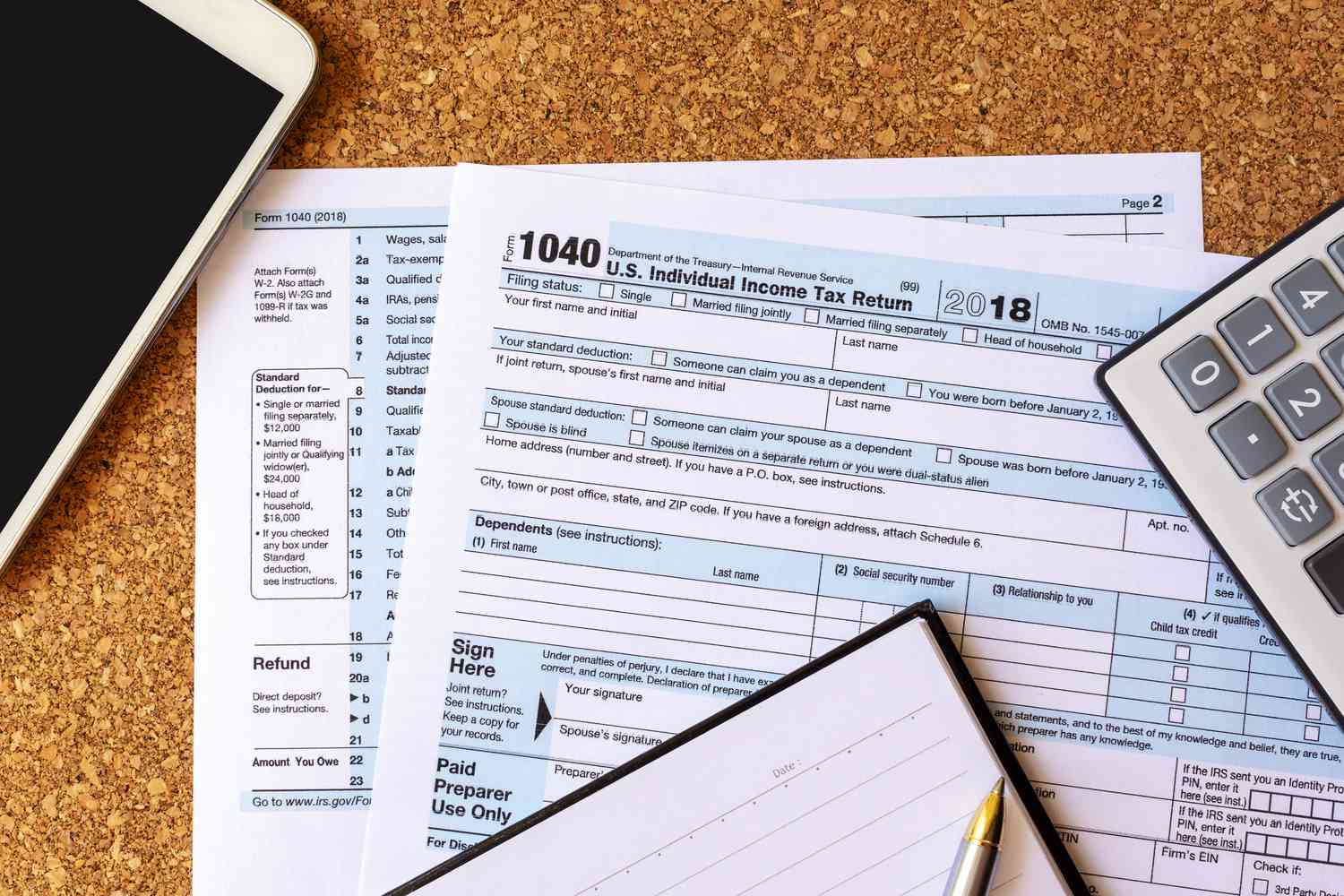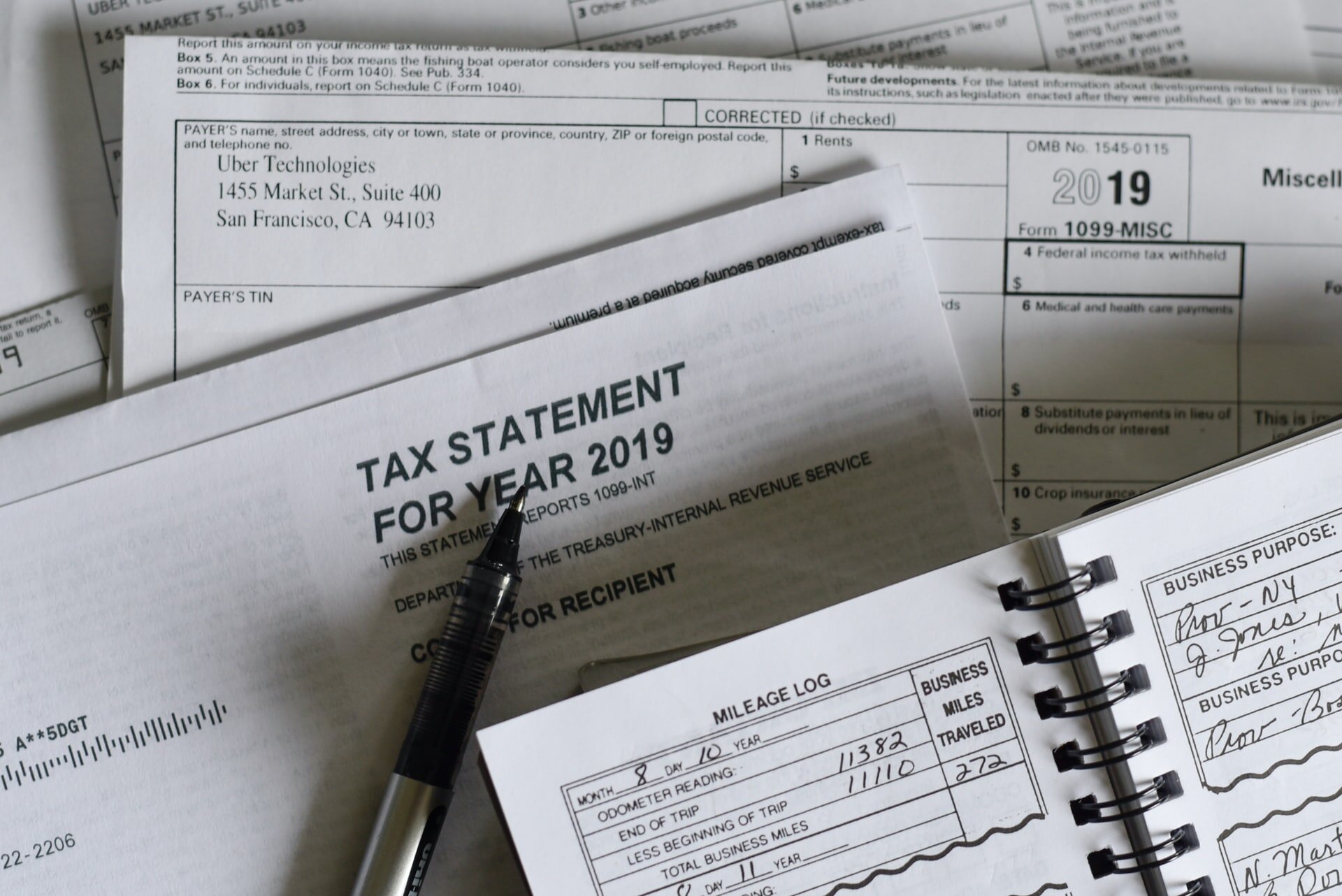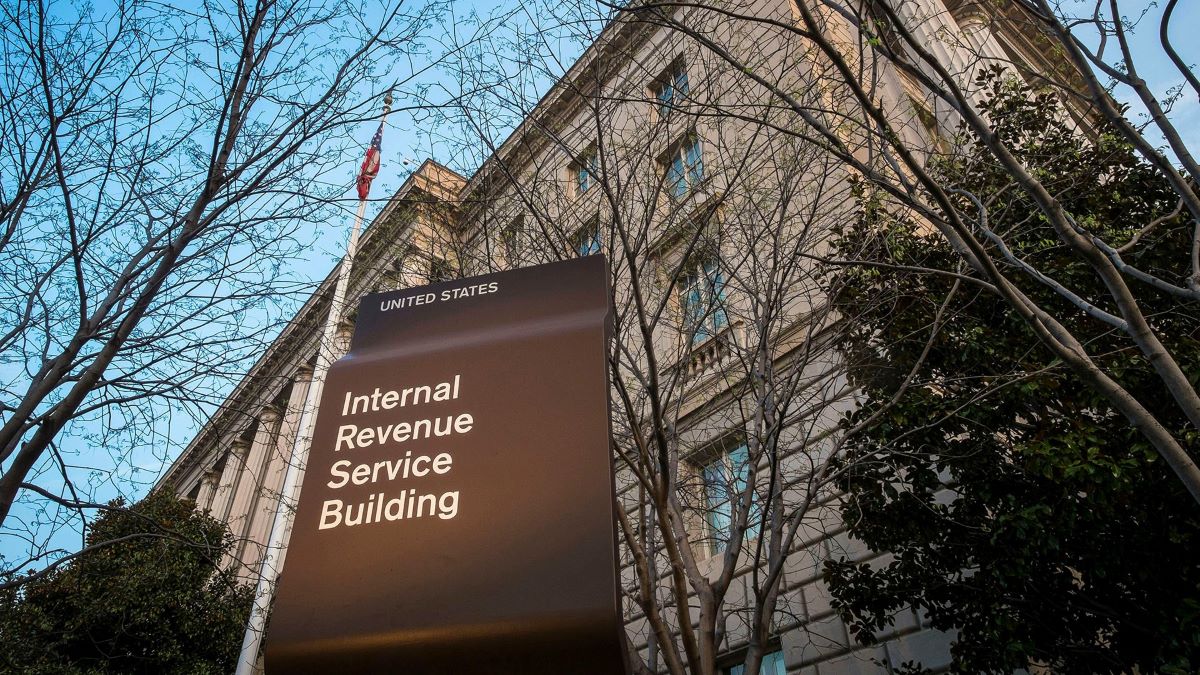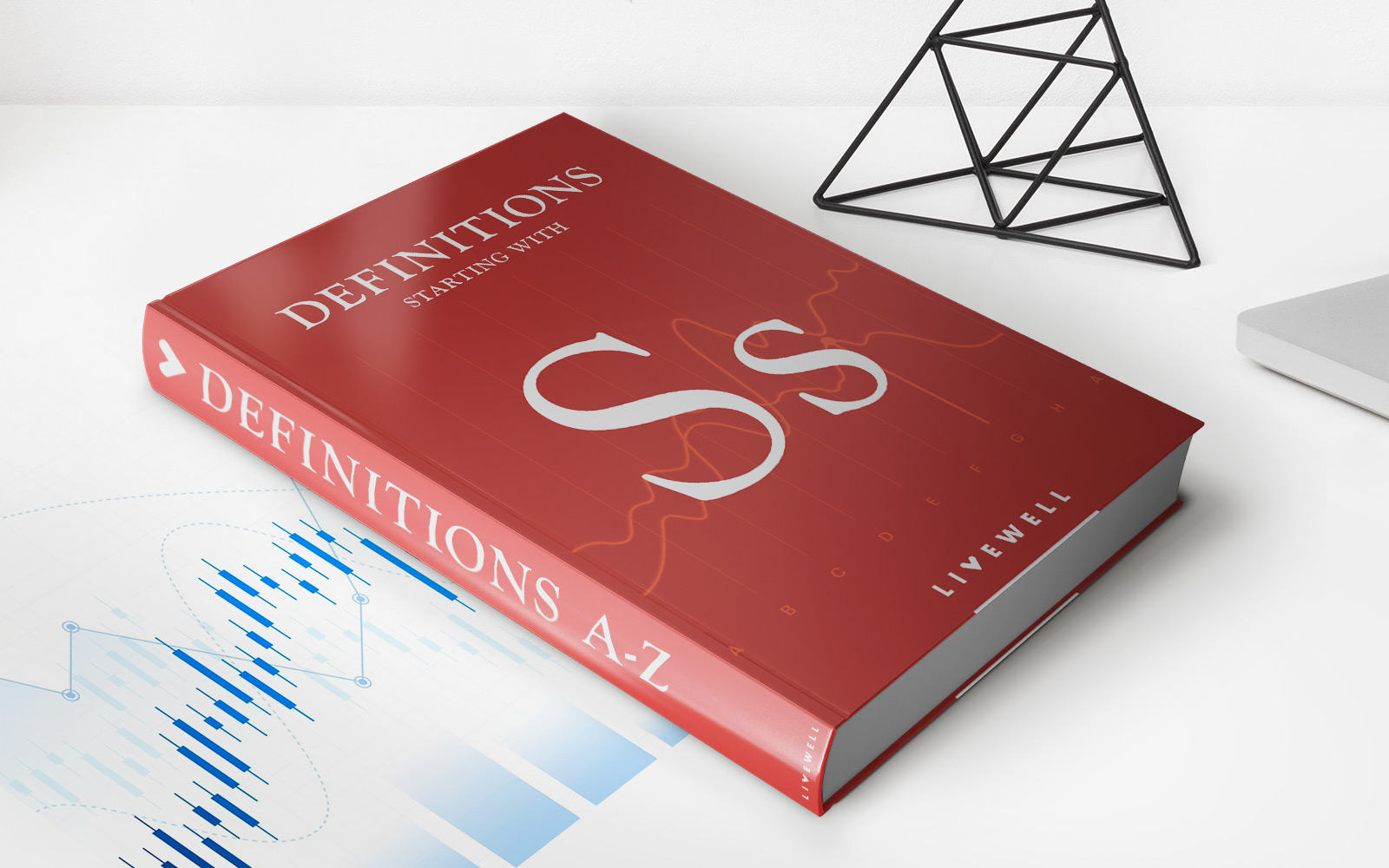

Finance
What Is A Notice Of Deficiency From The IRS?
Published: November 1, 2023
Learn what a notice of deficiency from the IRS means and how it impacts your finances. Stay informed on important tax matters with our comprehensive guide.
(Many of the links in this article redirect to a specific reviewed product. Your purchase of these products through affiliate links helps to generate commission for LiveWell, at no extra cost. Learn more)
Table of Contents
- Introduction
- Definition of a Notice of Deficiency
- Purpose of a Notice of Deficiency
- Content of a Notice of Deficiency
- Time Frame for Responding to a Notice of Deficiency
- Options for Responding to a Notice of Deficiency
- Consequences of Ignoring a Notice of Deficiency
- How to Challenge a Notice of Deficiency
- Conclusion
Introduction
Welcome to the world of taxes! If you have ever filed your tax return and received a notice from the Internal Revenue Service (IRS) stating that you owe additional taxes, you may have come across a term called “Notice of Deficiency.” Understanding what a Notice of Deficiency is and what it entails is crucial in navigating the complex world of taxation.
A Notice of Deficiency, also known as a 90-day letter or a statutory notice of deficiency, is an official communication from the IRS that informs taxpayers of their tax liability. It is used to notify taxpayers when the IRS believes that they have underreported their income or overstated their deductions, resulting in a tax deficiency.
This notice is generally sent after an audit or examination of the taxpayer’s return, during which the IRS questioned the accuracy or completeness of the reported information. It serves as a formal notice of the IRS’s intention to assess additional taxes, penalties, and interest against the taxpayer.
Receiving a Notice of Deficiency can be a daunting experience, but it is important to address it promptly and properly. In this article, we will delve into the purpose of a Notice of Deficiency, its content, the time frame for responding, available options for response, the consequences of ignoring it, and how to challenge it if you disagree with the IRS’s assessment.
By the end of this article, you will have gained a clear understanding of what a Notice of Deficiency entails and be better equipped to navigate the process of responding to and resolving any tax issues.
Definition of a Notice of Deficiency
A Notice of Deficiency, as mentioned earlier, is an official communication from the IRS that notifies taxpayers of their tax liability. It is also referred to as a 90-day letter or a statutory notice of deficiency. This letter serves as a formal notice that the IRS intends to assess additional taxes, penalties, and interest against the taxpayer.
When the IRS completes an audit or examination of a taxpayer’s return and determines that there are discrepancies or errors, they issue a Notice of Deficiency. The purpose of this notice is to inform the taxpayer of the specific adjustments the IRS wants to make to their tax return.
This notice is sent by certified mail and is usually delivered to the taxpayer’s last known address. It contains important information such as the tax year in question, the proposed adjustments to the return, and the resulting increase in tax liability.
It is important to note that a Notice of Deficiency is not a bill for payment. Rather, it is a formal notice that gives the taxpayer the opportunity to challenge the IRS’s proposed adjustments before any additional taxes, penalties, and interest are assessed.
Upon receiving a Notice of Deficiency, the taxpayer has the right to request a review of the proposed adjustments by the IRS Office of Appeals. If a resolution cannot be reached at the appeals level, the taxpayer can proceed to tax court.
Now that we have a clear understanding of what a Notice of Deficiency is, let’s explore its purpose and significance in more detail.
Purpose of a Notice of Deficiency
The primary purpose of a Notice of Deficiency is to inform taxpayers that the IRS believes they owe additional taxes based on discrepancies or errors found during an audit or examination of their tax return. It serves as an official document that outlines the IRS’s proposed adjustments to the taxpayer’s reported income, deductions, credits, or other relevant tax-related items.
One of the key purposes of a Notice of Deficiency is to provide the taxpayer with an opportunity to review and challenge the proposed adjustments. It gives them the chance to present any supporting documentation, evidence, or arguments to dispute the IRS’s assessment of their tax liability.
Another purpose of the Notice of Deficiency is to initiate the formal process by which the taxpayer can appeal the IRS’s proposed adjustments. It informs the taxpayer of their rights to request a review of the case by the IRS Office of Appeals. This appeals process allows for a more objective and independent assessment of the taxpayer’s situation and can often lead to a resolution without going to tax court.
The Notice of Deficiency also serves as a formal notification to the taxpayer that if they do not respond within a specific time frame, the proposed adjustments will become final and legally binding. This means that the additional taxes, penalties, and interest will be assessed, and the taxpayer will be required to pay the determined amount.
Essentially, the purpose of a Notice of Deficiency is to provide the taxpayer with an opportunity to contest the IRS’s proposed adjustments and present their case for why they believe the adjustments are incorrect. It serves as a crucial step in the process of resolving any discrepancies and ensuring that taxpayers are given a fair and equitable opportunity to address their tax liabilities.
Now that we understand the purpose of a Notice of Deficiency, let’s explore its contents in more detail.
Content of a Notice of Deficiency
A Notice of Deficiency contains important information that taxpayers need to know in order to understand the IRS’s proposed adjustments to their tax return. Let’s explore the key elements typically included in a Notice of Deficiency:
- Tax Year: The notice specifies the tax year for which the IRS is proposing adjustments. This helps the taxpayer identify the specific return under review.
- Proposed Adjustments: The notice outlines the specific changes the IRS wants to make to the taxpayer’s reported income, deductions, credits, or other relevant tax-related items. It explains why the IRS believes the adjustments are necessary and provides detailed information on each adjustment.
- Increase in Tax Liability: The notice clearly states the amount of additional tax liability the IRS is proposing. This includes the additional taxes owed, as well as any penalties and interest that may apply.
- Explanation and Legal Basis: The notice provides a detailed explanation of the IRS’s reasoning behind the proposed adjustments. It cites the specific tax laws and regulations that support their position.
- Your Appeal Rights: The notice outlines the taxpayer’s appeal rights and the steps they can take to challenge the proposed adjustments. It explains the option to request a review by the IRS Office of Appeals and provides information on how to initiate the appeals process.
- Deadline for Response: The notice specifies the deadline by which the taxpayer must respond to the notice. Generally, taxpayers have 90 days from the date of the notice to take action.
- Contact Information: The notice includes contact information for the IRS representative or office handling the case. This allows taxpayers to reach out for further clarification or guidance.
It’s crucial for taxpayers to carefully review the contents of a Notice of Deficiency to fully understand the proposed adjustments and their implications. If any information appears unclear or if the taxpayer believes there has been an error, it’s important to seek professional guidance or consider requesting a review by the IRS Office of Appeals.
Now that we have explored the content of a Notice of Deficiency, let’s move on to the time frames for responding to such notices.
Time Frame for Responding to a Notice of Deficiency
Upon receiving a Notice of Deficiency, taxpayers have a limited amount of time to respond. It is important to be aware of the specific time frame to ensure that you can properly address the proposed adjustments and exercise your appeal rights. Let’s explore the typical time frame for responding to a Notice of Deficiency:
The IRS generally allows taxpayers 90 days from the date of the notice to take action. This 90-day period is crucial and serves as a deadline for the taxpayer to respond and challenge the proposed adjustments.
Within this 90-day window, the taxpayer has several options for responding to the Notice of Deficiency:
- Agree to the Proposed Adjustments: If you agree with the proposed adjustments and do not wish to contest them, you can sign and return the response form included with the notice. By doing so, you are essentially accepting the additional tax liability as outlined in the notice.
- Request a Review by the IRS Office of Appeals: If you disagree with the proposed adjustments, you have the right to request a review by the IRS Office of Appeals. This is an independent branch of the IRS that considers taxpayer disputes and looks for possible resolutions without going to court. To request an appeal, you must follow the instructions provided in the Notice of Deficiency and submit your request within the 90-day period.
- File a Petition with the United States Tax Court: If you are unable to reach a resolution through the IRS Office of Appeals or if you choose not to pursue an appeal, you have the option to file a petition with the United States Tax Court. This must be done within the 90-day period, and it allows a judge to review the case and make a determination based on the evidence presented.
- Seek Professional Guidance: If you are unsure about the best course of action or if you need assistance in responding to the Notice of Deficiency, it is highly advisable to seek professional guidance from a tax attorney, CPA, or enrolled agent. They can provide expertise and help you navigate the complex process of responding to the notice and challenging the proposed adjustments.
It is important to note that the 90-day period is strictly enforced, and failing to respond within this time frame can have significant consequences. If you do not take any action within the 90-day window, the proposed adjustments in the Notice of Deficiency will become final and legally binding. This means that the additional taxes, penalties, and interest will be assessed, and you will be required to pay the determined amount.
Now that we have discussed the time frame for responding to a Notice of Deficiency, let’s examine the consequences of ignoring such a notice.
Options for Responding to a Notice of Deficiency
When faced with a Notice of Deficiency from the IRS, taxpayers have several options for responding to the proposed adjustments. It is important to carefully consider these options and choose the one that best aligns with your circumstances and objectives. Let’s explore the available options:
- Agree to the Proposed Adjustments: If you agree with the adjustments outlined in the Notice of Deficiency and do not wish to contest them, you can choose to accept the IRS’s proposed changes. In this case, you should sign and return the response form included with the notice, indicating your agreement. By doing so, you are essentially accepting the additional tax liability.
- Request a Review by the IRS Office of Appeals: If you disagree with the proposed adjustments, you have the right to request a review by the IRS Office of Appeals. This is an independent branch of the IRS that handles disputes between taxpayers and the IRS. To initiate the appeals process, you must follow the instructions provided in the Notice of Deficiency and submit your request within the designated time frame. The appeals process allows for a more impartial review of your case and the opportunity to present additional evidence or arguments to support your position.
- File a Petition with the United States Tax Court: If you are unable to reach a resolution through the IRS appeals process or if you choose not to pursue an appeal, you have the option to file a petition with the United States Tax Court. This is a formal legal proceeding where a judge will review your case and make a determination based on the evidence presented. It is important to note that filing a petition with the Tax Court must be done within the designated time frame provided in the Notice of Deficiency.
- Seek Professional Guidance: Responding to a Notice of Deficiency can be complex and overwhelming. Consulting with a tax professional, such as a tax attorney, CPA, or enrolled agent, can provide valuable guidance and expertise. They can help you understand your options, evaluate the strengths and weaknesses of your case, and navigate the appeals or Tax Court process.
It is important to note that the option you choose will depend on various factors, including the merits of your case, your financial capacity to pay the proposed adjustments, and your desired outcome. Seeking professional advice can be particularly beneficial when deciding the best course of action.
Remember, the key is to carefully review the Notice of Deficiency, understand the proposed adjustments, and respond within the designated time frame. Ignoring the notice or failing to respond can result in the proposed adjustments becoming final and legally binding, leading to additional taxes, penalties, and interest.
Now that we have explored the options for responding to a Notice of Deficiency, let’s discuss the potential consequences of ignoring such a notice.
Consequences of Ignoring a Notice of Deficiency
Ignoring a Notice of Deficiency from the IRS can have significant consequences that can worsen your financial and legal situation. Failing to respond to the notice within the designated time frame can lead to the following consequences:
- Assessment of Additional Taxes: If you do not respond to the Notice of Deficiency, the proposed adjustments outlined in the notice will become final and legally binding. This means that the IRS will assess the additional tax liability, penalties, and interest as proposed in the notice. Ignoring the notice will result in a higher tax bill, potentially with significant financial implications.
- Penalties and Interest: In addition to the additional taxes, the IRS can apply penalties and interest to the assessed amount. Penalties can include failure to pay penalties and accuracy-related penalties, which can significantly increase the overall amount owed. Furthermore, interest will continue to accrue on the unpaid balance until it is resolved.
- Seizure of Assets: Ignoring a Notice of Deficiency can escalate the situation, and the IRS may take further action to collect the outstanding tax debt. This can include placing a tax lien on your property, garnishing wages, levying bank accounts, or seizing assets to satisfy the tax debt. These collection actions can cause severe financial disruptions and even lead to the loss of personal property.
- Damage to Credit Score: Unpaid tax liabilities can negatively impact your credit score. Tax liens and other collection actions by the IRS can be reported to credit reporting agencies, resulting in a lower credit score. This can make it more difficult to obtain loans, credit cards, or favorable interest rates in the future.
- Legal Action: Ignoring a Notice of Deficiency can eventually lead to legal action by the IRS. If the tax debt remains unpaid, the IRS can file a lawsuit against you to collect the outstanding amount. This can result in a court judgment, wage garnishment, or other legal measures to enforce the collection of the tax debt.
It is crucial to understand that ignoring a Notice of Deficiency will not make the issue go away. Instead, it will compound the problem and lead to more severe consequences. It is in your best interest to respond to the notice within the designated time frame and explore your options for challenging the proposed adjustments or resolving the tax dispute.
If you are unsure about the best course of action or need assistance in responding to a Notice of Deficiency, it is highly recommended to seek professional guidance from a tax attorney, CPA, or enrolled agent. They can help you navigate the process, protect your rights, and work towards resolving your tax issues.
Now that we understand the potential consequences of ignoring a Notice of Deficiency, let’s discuss how to challenge it if you believe the IRS’s assessment is incorrect.
How to Challenge a Notice of Deficiency
If you believe that the Notice of Deficiency issued by the IRS is incorrect or unjustified, you have the right to challenge it. Here are the steps to follow when challenging a Notice of Deficiency:
- Review the Notice and Understand the Proposed Adjustments: Thoroughly review the Notice of Deficiency and understand the specific adjustments the IRS is proposing. Take note of any discrepancies or errors that you believe are incorrect. It is essential to have a clear understanding of the IRS’s position before challenging it.
- Gather Supporting Documentation: Collect all relevant documents, records, receipts, and any other evidence that can support your position. This may include bank statements, receipts, tax forms, or any other documentation that can validate your deductions, credits, or income reported on your tax return. Having strong supporting documentation can strengthen your case when challenging the Notice of Deficiency.
- Contact an Experienced Tax Professional: Seek guidance from a tax attorney, CPA, or enrolled agent who specializes in tax disputes. They can provide expert advice and help you navigate the complex process of challenging a Notice of Deficiency. They will assist in preparing your case, reviewing your documentation, and developing a strategy to present your argument effectively.
- Request a Review by the IRS Office of Appeals: If you disagree with the proposed adjustments, you have the right to request a review by the IRS Office of Appeals. This can often be done by completing and submitting Form 12203, Request for Appeals Review, as indicated in the Notice of Deficiency. Be sure to provide a clear and detailed explanation of your position and include any supporting documentation. The appeals process allows for an objective review of your case, considering your arguments and evidence.
- Participate in the Appeals Process: During the appeals process, you may have the opportunity to present your case to an appeals officer. This can be done through written correspondence, telephone conferences, or even face-to-face meetings. Be prepared to articulate your arguments clearly and concisely, providing any additional evidence or documentation to support your position.
- Consider Mediation or Settlement: In some cases, the appeals officer may suggest mediation or a settlement option to resolve the dispute. This can involve negotiating a mutually acceptable resolution that mitigates the tax liability without having to go to court. It is important to carefully consider any settlement offers presented and consult with your tax professional to determine the best course of action.
- File a Petition with the United States Tax Court: If you are unable to reach a resolution through the appeals process or if you choose not to pursue an appeal, you have the option to file a petition with the United States Tax Court. This must be done within the designated time frame provided in the Notice of Deficiency. The Tax Court will review your case and make a determination based on the evidence presented. Engaging the services of a tax attorney experienced in Tax Court proceedings is highly recommended.
It is important to note that the process of challenging a Notice of Deficiency can be complex and time-consuming. It requires a thorough understanding of tax laws, regulations, and procedures. Seeking professional guidance is highly recommended to ensure that you present your case effectively and protect your rights throughout the process.
By following these steps and working with a knowledgeable tax professional, you can effectively challenge a Notice of Deficiency and seek a resolution that is fair and equitable.
Now that we have discussed how to challenge a Notice of Deficiency, let’s conclude our discussion.
Conclusion
Dealing with a Notice of Deficiency from the IRS can be a source of stress and uncertainty. However, understanding what a Notice of Deficiency is and how to navigate the process is crucial in protecting your rights as a taxpayer.
In this article, we explored the definition of a Notice of Deficiency and its purpose. We learned that it is an official communication from the IRS that notifies taxpayers of their tax liability based on proposed adjustments to their tax returns.
We discussed the content of a Notice of Deficiency, including the tax year in question, the proposed adjustments, the increase in tax liability, and the legal basis for the adjustments. We also explored the time frame for responding to a Notice of Deficiency and the available options for challenging the proposed adjustments.
Furthermore, we examined the potential consequences of ignoring a Notice of Deficiency, emphasizing the importance of timely response to avoid additional taxes, penalties, interest, and possible legal actions by the IRS.
Lastly, we discussed the steps involved in challenging a Notice of Deficiency. From reviewing the notice and gathering supporting documentation to requesting a review by the IRS Office of Appeals and potentially filing a petition with the United States Tax Court, each step requires careful attention and professional guidance to increase your chances of a favorable outcome.
Remember, when dealing with a Notice of Deficiency, seeking the guidance of a tax attorney, CPA, or enrolled agent is highly recommended. They have the expertise to navigate the complex tax laws and procedures and can provide valuable advice and representation throughout the process.
In summary, addressing a Notice of Deficiency requires timely action, careful analysis, and professional assistance. By understanding the contents of the notice, exploring your options, and working with a tax professional, you can effectively challenge the proposed adjustments and protect your rights as a taxpayer.














